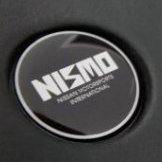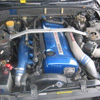Today I Bought An Oil Filter Magnet... Previous Experiences?
Announcements
-
Similar Content
-
Latest Posts
-
One main filter. Each tank has a prefilter to keep rocks and small children out, then the big main filter that also does water separation. Clogged the first one so bad it was like a rev limiter at 3200rpm. Literally just like dropping the throttle off and maintaining rpm!
-
By Dose Pipe Sutututu · Posted
fark... Brett is beating me in terms of kms -
By Dose Pipe Sutututu · Posted
renovations going well 😆 Assuming each tank has it's own filter? OR does it just merge upstream into 1? -
I did more kms in my car this year lol







Recommended Posts
Create an account or sign in to comment
You need to be a member in order to leave a comment
Create an account
Sign up for a new account in our community. It's easy!
Register a new accountSign in
Already have an account? Sign in here.
Sign In Now